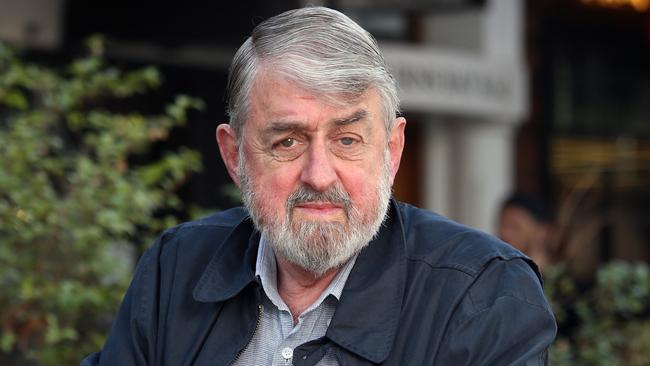‘Piecemeal’ tactics have failed: former NSW DPP Nicholas Cowdery seeks rethink on drug laws
A former head prosecutor has called for an expansion of the drug courts and an overhaul of possession laws as NSW lags behind the country.

“Piecemeal” drug laws are damaging NSW, with police afforded too much discretion in charging, according to the state’s former director of public prosecutions.
NSW is approaching a crucial moment in drug law reform, with consultation due to begin by the end of the year.
Former DPP Nicholas Cowdery said it provided a chance for a cohesive policy, rather than an “ad hoc” array of responses. NSW has three different measures for responding to drug possession, leaving authorities to decide whether an offender is prosecuted, cautioned or issued with an infringement notice.
The government has not committed to reforms or further diversion of drug offenders into the health system before it takes on consultation at its October-to-December “drug summit”.
Mr Cowdery led the state’s prosecutors from 1994 to 2011, and was key in establishing the first state drug court, located in Parramatta. “I lent my prosecutors to that court to assist, so I’m very pleased to see it expanded, and it does great. It’s a great benefit where it is operating, but it has a limited catchment,” he said.
“It’s not a magic bullet, but for the people who can get before the drug court, it has been proven to be enormously effective in sorting out (their) lives and getting them back into the community.
“There’s a fairly general exclusion of violent offences and maybe that doesn’t need to be quite as exclusionary as it is … for example, there may be some domestic violence offences where the offenders could benefit from being part of the drug court program.”
There are four drug courts in NSW that will soon operate across 20 local government areas. The specialised courts monitor and enrol drug-affected offenders into recovery programs rather than handing down criminal penalties.
However, drug courts do not sit five days a week and are restricted in their caseloads. The CBD centre, located in the Downing Centre complex, can only take on 40 cases a year, but is set to expand services in 2025.
It relies on a ballot system in order to choose cases from its growing number of applications.
Research by the National Drug and Alcohol Research Centre found drug courts reduce rates of reoffending by 17 per cent. NDARC also indicated changes to the prosecution of drug-related offences had relatively little variance in cost to taxpayers, leaving government hesitancy far more dependent on public attitude.
With the current system of mixed reprimands, the state government pays $977 per offender in costs of services and administration. If it committed purely to cautioning, that cost would reduce to $507, while infringement notices would see the government profit $225 per offence. A return to prosecution of all cases would raise the taxpayer burden to $1282, the NDARC said.
“There hasn’t been a co-ordinated, overall reassessment of what we need to do in NSW,” Mr Cowdery said.
“There are some parliamentarians who believe very strongly in the need for change, but you won’t hear them say that publicly.”






To join the conversation, please log in. Don't have an account? Register
Join the conversation, you are commenting as Logout